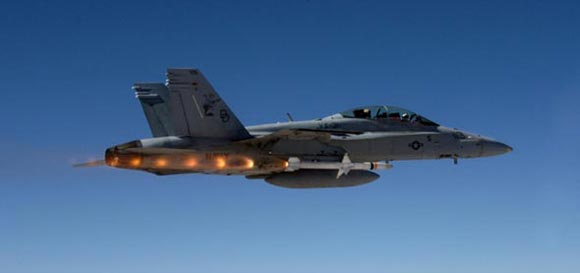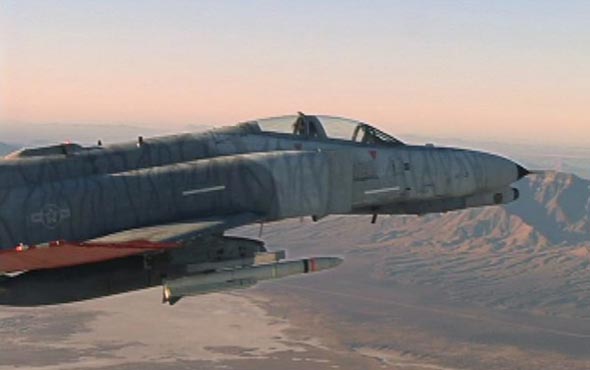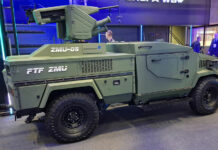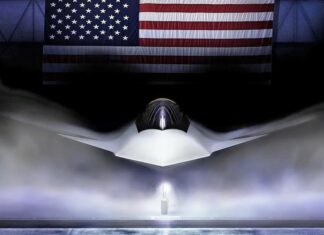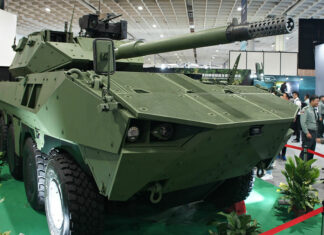The U.S. Navy, and the Italian Air Force performed two missile firing tests of the AGM-88E Advanced Anti-Radiation Guided Missile (AARGM) n August 2008. The tests were performed at the Naval Air Weapons Station China Lake, as part of the missile’s Operational Assessment, preceding a forthcoming ‘Milestone C’ Decision to begin Low Rate Initial Production (LRIP). The recent test involved an operationally realistic scenario, where AARGM’s demonstrated its lethality against modern, advanced air defense systems employing shutdown tactics.
Launched from an FA-18D Hornet, the AARGM detected, identified, located, and guided toward the emitter target using its Anti-Radiation Homing (ARH) receiver. After target radar emissions were purposely shut-down during the missile’s flight profile, the missile utilized its GPS/INS to guide to the final ARH cue, employed active Millimeter Wave (MMW) radar tracking for terminal guidance against the shut-down air defense site. The firing was the fourth of eight planned developmental and the final missile live-fire tests. AARGM is designed to be the successor to the U.S. Navy AGM-88 HARM system. When fielded in FY10, AARGM will be the only extended range tactical supersonic multi-role strike weapon in U.S. and Italian inventory. It will be cleared for operation on FA-18C/D, FA-18E/F, EA-18G and Tornado ECR aircraft. The missile is also designed for compatibility with the F-35 Joint Strike Fighter, EA-6B Prowler and U.S. and Allied F-16 Falcon aircraft.
Testing Ramjet Powered HSAD
Under a technology demonstration flight test conducted earlier this year the Integral Rocket Ramjet (IRR) propulsion system developed by Aerojet performed a successful test flight earlier this year at the White Sands Missile Range in New Mexico. The IRR incorporates a nozzleless booster and Variable-Flow Ducted Rocket (VFDR) ramjet. The new propulsion system was developed for the High-Speed Anti-Radiation Demonstration (HSAD) program, a future long-range, high speed anti-radar weapon. Development of the HSAD is sponsored by the Office of Naval Research (ONR) Air Warfare and Naval Weapons Applications with the Naval Air Warfare Center Weapons Division/China Lake (NAWCWD/CL) serving as the program lead and system integrator.
The missile was rail-launched from a QF-4 drone aircraft, accelerated to supersonic speed, and transitioned to supersonic sustain-phase ramjet flight using Aerojet’s VFDR ramjet propulsion system. The VFDR ramjet system features a responsive energy-management capability that provides the missile with active propulsion throughout the entire sustain flight, enabling flight at speeds much higher than standard solid propellant rocket-powered systems.

